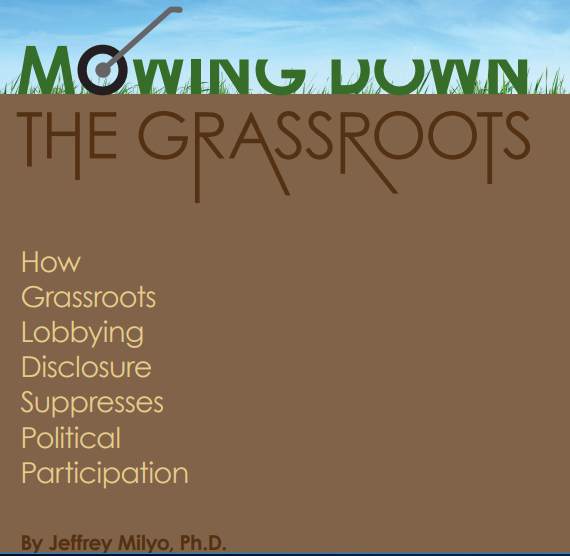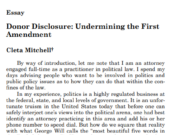Grassroots lobbying is any effort to organize, coordinate or implore others to contact public officials in order to affect public policy. Through grassroots lobbying, like‐minded citizens can alert elected officials to constituents’ preferences, educate fellow citizens and make their voices heard, and even persuade the public to adopt new views. In short, grassroots lobbying is quintessential representative democracy in action. However, as this report documents, sweeping lobbying laws in 36 states threaten to strangle grassroots movements in red tape and bureaucratic regulation. Twenty‐two states explicitly include grassroots lobbying in the definition of lobbying, while another 14 consider any attempt to influence public policy to be lobbying, as long as a certain amount is spent. Thus, such common activities as publishing an open letter, organizing a demonstration or distributing flyers can trigger regulation and force organizers to register with the state and file detailed reports on their activities, as well as the identities of supporters. These regulations raise the costs of political activity and set legal traps for unsuspecting citizens, thus making it more difficult for ordinary citizens to participate in politics-all with little or no benefit to the public. These findings suggest elected officials should listen to constituent concerns or debate ideas in the open, rather than mowing down the grassroots with regulation.














